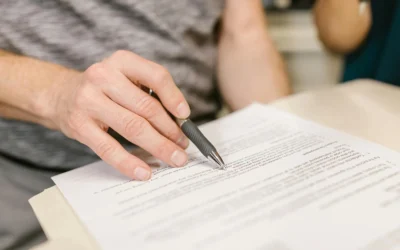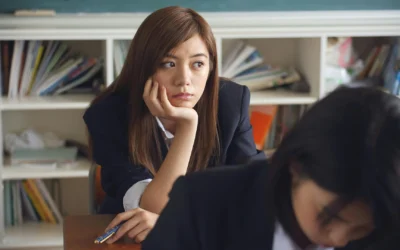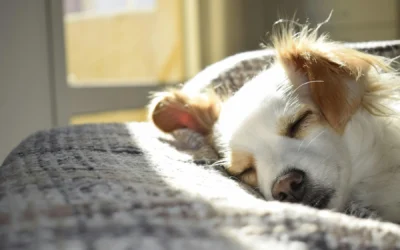(Transcription)
Leanne Abela:
Hello, I’m Leanne Abela. And today I’m speaking with Benita Crocker, of our firm. And welcome to Pearsons Law.
Leanne Abela:
Today’s topic, Benita?
Benita Crocker:
What’s an independent children’s lawyer, Leanne.
Leanne Abela:
Okay. You are an independent children’s lawyer.
Benita Crocker:
I am an independent children’s lawyer.
Leanne Abela:
And I’m not. So that’s a particular expertise that you’ve got, Benita, and I haven’t.
Benita Crocker:
It is, it is. And it’s often a very important part of the court, and it’s to do with parenting matters. So really one of the most stressful times in people’s lives is parenting matters and making sure the parenting arrangements are in the best interest of the children. So, that’s what I’m involved in.
Leanne Abela:
So, when you and I started, decades and decades and decades ago, Benita, there was no such thing as an independent children’s lawyer. People fought over the children. They were then called custody and access and guardianship. And I guess, in the last, would you say, 10 to 20 years?
Benita Crocker:
I think so, 20 years-
Leanne Abela:
Yeah, called an ICL, independent children’s lawyer. The acronym is ICL.
Benita Crocker:
Child representative, they used to be called. Remember? When they first started.
Leanne Abela:
Child representative, that’s what they used to call it. That’s right.
Benita Crocker:
Yeah, that’s right. Yes.
Leanne Abela:
And we were all pretty, I would say, cynical about it. Thinking, what do you need a lawyer for the kids for? And how are lawyers going to interview the children? What do we know about interviewing children or representing children?
Benita Crocker:
Sure.
Leanne Abela:
We’re lawyers for God’s sake.
Benita Crocker:
Of course.
Leanne Abela:
Some of us didn’t even have children that many years ago.
Benita Crocker:
Yeah, that’s right.
Leanne Abela:
And so the court introduced them, on the basis that it was a good idea in terms of guiding the court and getting the voice of the children heard on some occasions, when the children are older or not. But, also looking at it from the best interest of the children. Yeah.
Benita Crocker:
Yeah. I think so too. And also the court has to deal with so many cases and so many families, and I think what they were really trying to do as well is make it have someone there as an honest broker who can provide information, do a lot of the background work that the judge really may not be in a position to do and present the independent evidence to the court to say, “Hey, look, I’ve spoken to the school, I’ve spoken to a doctor. I’ve spoken to the family report writer.” And really trying to provide a bit of an independent look at what’s in the best interest. Yeah.
Leanne Abela:
What did you have to do to become an independent children’s lawyer?
Benita Crocker:
Well, it was actually quite a massive task. You had to do a huge application form. You have to be experienced in family law. And you also have to do this application form, which basically sets out a whole lot of cases that you’ve been involved with, that have involved independent children’s lawyers or have involved situations that are complicated and how you would have approached it and how you would have resolved it. And yeah, it was really quite a big deal.
Leanne Abela:
That’s a pretty big, scary exam.
Benita Crocker:
Yeah, it was, it was, but obviously got through.
Leanne Abela:
And ongoing. What do you do on an ongoing basis to keep up? Do you have to do accreditation regularly?
Benita Crocker:
I don’t think that you do. No. I don’t think that you do.
Leanne Abela:
But you are still on the panel?
Benita Crocker:
You’re still on the panel.
Leanne Abela:
I see you’re a chapter of a panel.
Benita Crocker:
Yeah. And I think you do reapply every two or three years to stay on the panel.
Leanne Abela:
So part of being on the panel, is that you continue to be involved in litigation and children?
Benita Crocker:
Absolutely. Yeah, absolutely. So you’ve got to keep up with it, but it’s a really important aspect of parenting matters because it’s at the most extreme end that the court usually appoints an independent children’s lawyer in cases where there’s allegations of physical abuse, sexual abuse, child abuse. So we’re dealing with some really vulnerable kids and kids that really need someone in there who are advocating for them as well. So it’s really important, really important aspect of it. Yeah.
Leanne Abela:
So sometimes when I’m representing clients, they’ll say to me, “Well, there’s an independent children’s lawyer, when is she or he going to speak to the children?” And I’ll say, “Well, that’s up to them.” And they may never speak to the children because they may not need to, or they may change their mind during the course of the case and decide to. So tell me what it takes for you to decide whether or not, what factors you take into account when you’re deciding whether or not to interview children?
Benita Crocker:
Well, part of the training that we did was also a whole online video training as well. And they had lots of… They talked a lot about best practice. It used to be, I think, that the kids weren’t necessarily interviewed. I think that’s changed. I think there’s an expectation and certainly in the best practice guidelines is an expectation that the child has a right to have a professional relationship with the ICL to the extent that they can.
Benita Crocker:
So normally, if the kids are primary school aged and certainly high school aged children, I would meet and speak with them. But my role isn’t to sit down with them and say, “Now look, who do you want to leave with? Who do you like better? Who do you love?” I don’t do any of that. It’s more a meet and greet and really talking to them about the process of the court. Talking to them about they might meet someone, talk to them and have in terms of a family report writer. That both parents love them. That were trying to get through this and giving them some insight into the process. So it’s certainly not me sitting there grilling them about what their wishes are.
Leanne Abela:
Do they ask you questions?
Benita Crocker:
Sometimes they do. I get them to do drawings, often primary school kids. I say, “Look, I really need some pictures for my office. Could you do some drawings for me?” I’ve had a couple of teenage kids, children who have been really vocal with their wishes and really wanting me to put their voice across. And I felt a real obligation and a responsibility to do that within the context of what I thought was in their best interest.
Leanne Abela:
Even though you hadn’t asked for it?
Benita Crocker:
Even though I hadn’t asked for it. Yeah, that’s right. And then sometimes there are kids that come in and you do feel like they’ve been worded up basically, from their parents. So I would say to any clients out there or parties, just listening in terms of it, you’d need to be really careful with the kids in terms of what you tell them about. It’s much worse if the kids come in and it’s almost like they’re reading off a script in terms of what mom and dad have said. And I know it’s really hard because parents want their kids to be able to have a voice, but you can’t put the kids under any pressure in terms of what they’re going to say. And ultimately, I’m just one part of the whole cog.
Leanne Abela:
So your information is one part of all the information the judge is considering when making a case.
Benita Crocker:
Correct. Yeah. And in fact, the other day, a judge decided against what I was recommending. So even if the independent children’s lawyer says, “Look, I think this is a case that this should happen.” And in that case, there was some severe allegations. And I was wanting a little bit more time to get some reports before time started with the other parent. And the judge says, “No, I think time should start anyway.” So that was a case where I was advocating for something. And the judge didn’t agree with me and that’s okay. That’s fine.
Leanne Abela:
That’s more than okay. After all Benita, you are not a family court judge.
Benita Crocker:
Exactly. That’s right. That’s right. I’m just one part of the whole-
Leanne Abela:
The court, the affidavits.
Benita Crocker:
Correct.
Leanne Abela:
Look, I don’t know what your experiences is, but mine is that sometimes you get the view of the independent children’s lawyer. And let’s face it, there are good independent children’s lawyer, there are bad ones, and the parties don’t get to choose. They get allocated. They get picked for them. And sometimes solicitors are a little bit intimidated by, or for want of a better word, elevate the ICL to the role of judge, thinking, “Listen, the ICL’s not recommending time, so you’re not going to get time.” Well, that’s just not the case.
Benita Crocker:
That’s not-
Leanne Abela:
The ICL as a human being. The ICL is a lawyer. And the ICL is not a judge.
Benita Crocker:
No, that’s right. I think where the ICLs can help with that sort of stuff is minor dispute. Often parties might be fighting over change over time or change over location. And they just need someone to make a call on it. And in those minor disputes, I find it really helpful for you to just say, “Well, look, this is what I think.” And often the parties will just go with that because they’ve got someone who’s saying, “Look, this is one way or another.”
Benita Crocker:
But I think the big issue, absolutely on big issue matters, where if you’ve got a client who is not in agreement with the ICL, then there’s absolutely no
pressure to resolve it on that basis.
Leanne Abela:
That’s right. It really is another piece of information, as you said.
Benita Crocker:
Yeah, absolutely. Yeah.
Leanne Abela:
So that’s been really useful Benita, and we think that we’re very, very fortunate to have you at Pearson’s Lawyers as an ICL, being able to give us that perspective. Obviously you can’t be ICL for our clients or cases we’re involved in. But your perspective really assists us in giving us information when we’re running a case with an ICL. And we might think an ICL’s hopeless or an ICL is great. And you might give us a strategy to use in dealing with the ICL. So it’s been terrific having you and your input in the firm.
Benita Crocker:
Yeah. And I think also with parenting matters, a lot of it is around subtlety. It’s not black and white. And so it is really useful to have people that are experienced in parenting. And the ICL work for me has been a fantastic experience. And I feel I’m learning a lot and giving it back a lot to the firm. So I think it’s fantastic.
Leanne Abela:
That’s terrific. So until next time, that’s all from Pearson’s Law. And you’ll hear from us in our next podcast.
Thank you.



